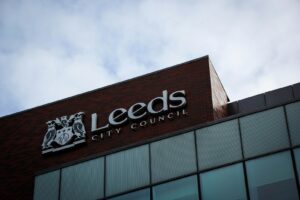A report outlining the impacts of the low-car transition in cities on disabled people and pathways to achieving an inclusive low-car city has been published by climate charity Possible and the University of Westminster’s Active Travel Academy.
The report is the product of in-depth interviews and a focus group consisting of people with a range of disabilities. Participants recognised that reducing car use is a vital part of addressing the climate crisis, but emphasised that creating low-car futures must be a process which accounts for the challenges disabled people face in their daily lives.
Testimonies of disabled participants reveal their being ‘left out’ of planning decisions during the pandemic which resulted in the introduction of low-car infrastructure that ultimately did not work for them. As one participant voiced: ‘Over the pandemic all sorts of street changes cropped up without proper consultation. And some of those things are just making it much harder for disabled people to move around’.
However, participants also detailed how the inaccessibility of our existing car-centric cities makes it harder to walk, wheel, cycle or take public transport. Participants cited cracked pavements, a lack of dropped kerbs, a lack of level access on public transport and adequate space for wheelchairs, and cycle lanes not accommodating trikes or adapted cycles. These barriers effectively lock disabled people into car dependency, with one participant specifically saying that it feels like the only ‘safe and reliable option to access town centres’.
The report concludes that efforts to reduce traffic need to be focused on encouraging non-disabled people to make fewer car journeys as alternative modes of transport are more accessible to them. In doing so, we would reduce the conditions that create the disabling environment of cities. As one participant suggested: ‘If we could get more people who are able to use public transport to use it, then that could reduce the number of cars in town and city centres, which could leave it open for disabled people to access it by whatever means they need to’.
The report has called on local councils to build support for traffic reduction measures while accounting for the diverse access needs of disabled people. Recommendations include improvements to walking, wheeling and cycling environments, public transport provision and the accessibility of all forms of public transport.
Anzir Boodoo, Car Free Cities Consultant for climate charity Possible and co-author of the report said: ‘This report shows what disabled have been saying for a long time – when disabled people are a central part of urban design processes, then cities become more accessible for all. The status quo locks many disabled people into car dependency, but it doesn’t have to be this way. If we built truly accessible streets and a public transport system that all disabled people could use, we could transition away from cars in a way that was fair for everyone’.
For the full report, ‘Nobody Left Behind: Envisioning inclusive cities in a low-car future‘, including supporting data, please click here.
In related news, the City of Edinburgh Council has reaffirmed its commitment to safer, more accessible footways with a boost in funding for measures to improve pavements and footpaths.
Photo by Daniel Ali

















Leave a Reply